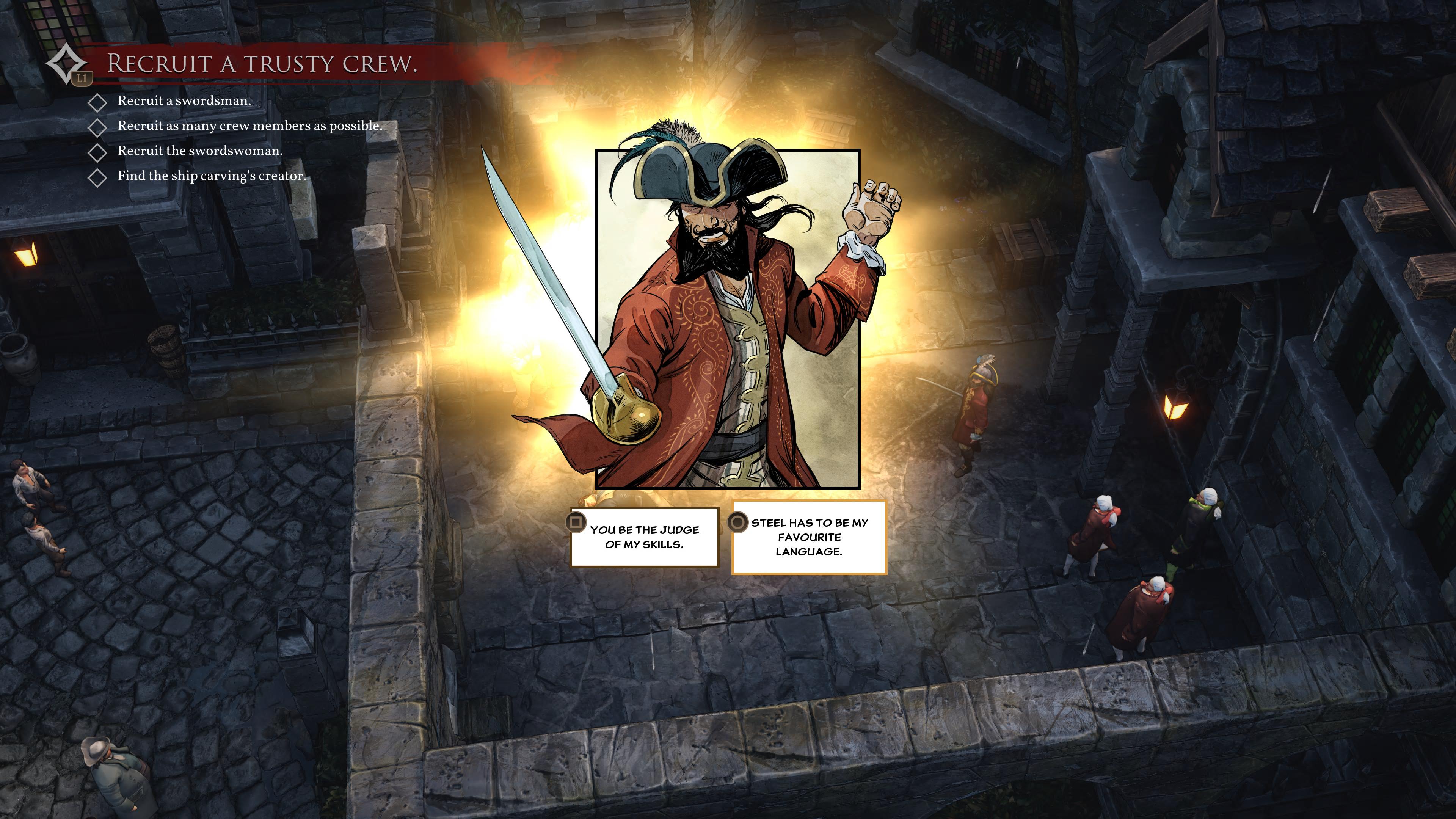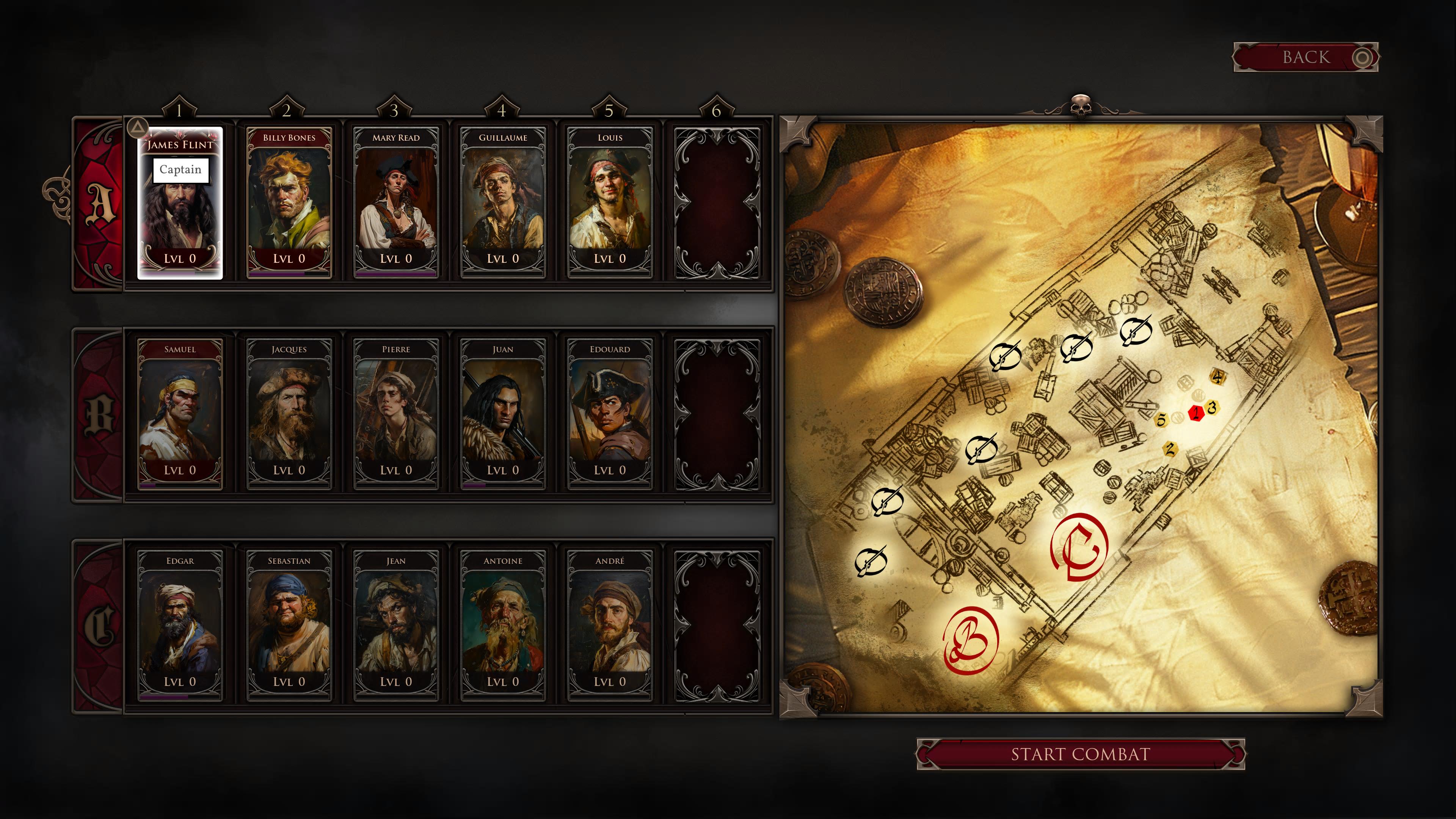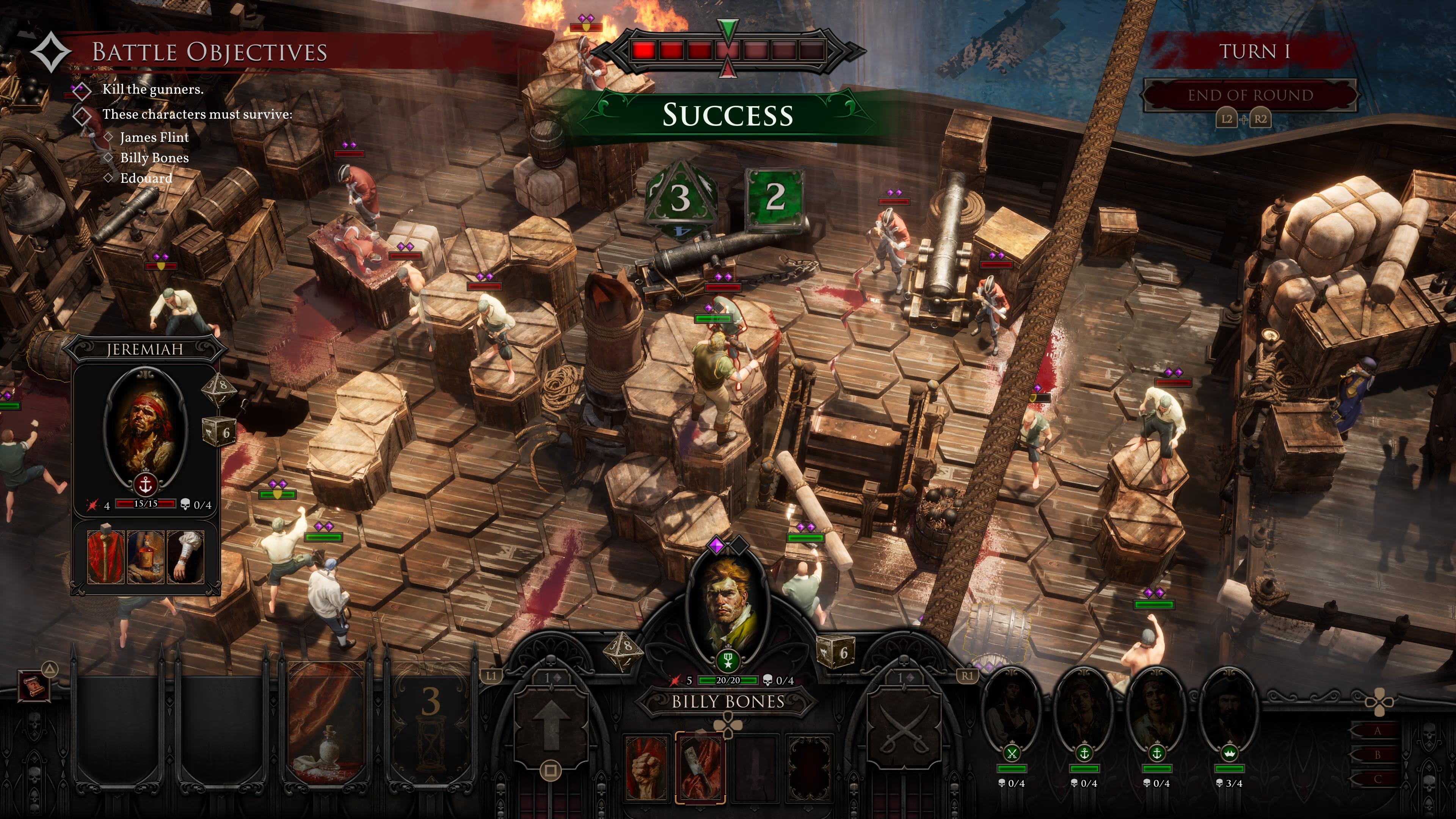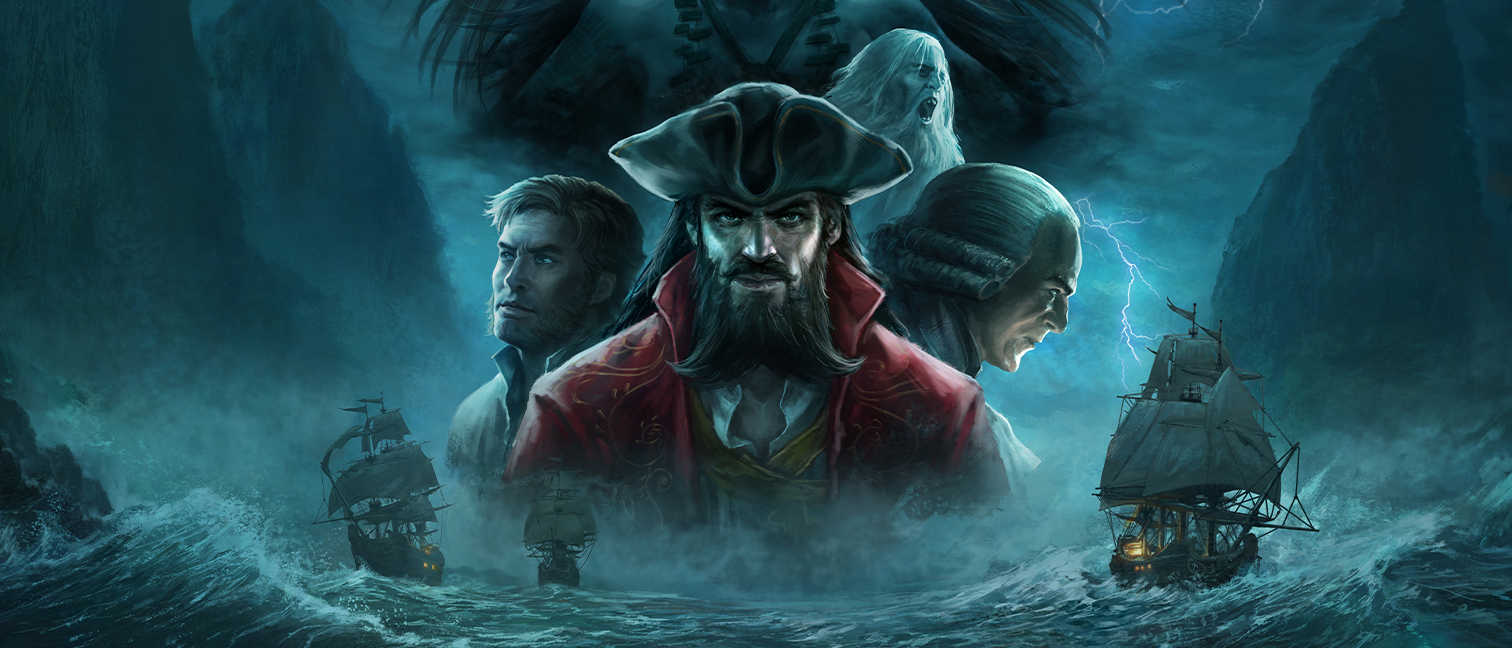Why you can trust Creative Bloq
Publisher Microids
Developer Savage Level
Format PC, Xbox Series X/S, PlayStation 5 (reviewed)
Platform Unreal Engine 5
Release date 17 December 2024
The trend for pouncing upon out of copyright art, books and fiction continues apace with Flint: Treasure of Oblivion, a role-playing game that riffs on Robert Louis Stevenson’s world as described in Treasure Island. But this is no Winnie-the-Pooh: Blood and Honey shakedown, as developer Savage Level has gone to great lengths to craft a world of its own within Stevenson’s imagination. This is gloomy and scrappy, with rum-soaked cadavers and potential crew alike littering the game's taverns, with a sprinkle of dark fantasy.
On paper Flint: Treasure of Oblivion has so much to offer: a return to complex table-top role-playing game mechanics, detailed crew management, a world ripe for exploration and a sombre, sharp-edged art style punctuated by vibrant Franco-Belgian comic panels. It holds the promise of Baldur's Gate drawn by Moebius, Fallout inked by Hergé, and in parts Flint comes close as I immerse myself into the world of drunken pirates, involved card management and random dice rolls. Yet, Flint doesn’t always feel as sharp as it could be.
Flint: Treasure of Oblivion has comic appeal

The adventure begins in the dungeons of French city Saint-Malo, where Captain Flint and second-in-command Billy Bones stumble upon a treasure map and the tease of adventure, gifted by an old pirate who may be more than he seems.
Upon escaping, gathering a crew and taking over a ship the adventure begins in earnest and Flint: Treasure of Oblivion opens up and falls into a pattern of exploration to find fresh leads on that treasure island as well as new game cards - used to unlock unique abilities, obtain new skills, improve dice chances and more - and then battles, resulting in needed booty that can be used to upgrade your crew (neatly, a pirate’s ‘XP’ is measured in wealth).
Much of the game is absorbed in the battle system. For good and bad, Flint is complex, detailed and tactical. It’s a battle system built on hexagonal tiles with a points system that dictates movement and attacks, each pirate has a range of attribute cards to play that can affect statuses or directly influence the battle. Dice rolls dictate attack damage and can influence weapon effects, as well as movement (two dice are rolled, one for a pirate's profession and one for their weapon; pirates can stumble, push or tackle enemies, and it's not uncommon for dice to end in a fail state, ruining any carefully laid plans.

Pirate Morale dictates a successful dice roll, land lower and its a fail, higher and you win a move or attack chance. Ability cards can be played to affect Morale and learning to manage this status becomes a vital.
Every pirate has a set of unique weapons and skills, you can swap between swords and muskets, and combine card effects and character abilities to create new, complex attacks. It prevents you becoming overly reliant on the same weapon or loadout and encourages experimentation. And there are lots of pirates to unlock and make use of. But… It's incredibly complex, involved but also ‘bitty’ and slow.
When exploring the game’s world for loot and new card abilities to aid future fights, Flint is great fun. The small-scale skirmishes work wonderfully and that sense of experimentation bubbles to the fore. However, when the larger battles ensue, with up to 15 characters on either side, Flint’s battles can become unwieldy, slow and its system a pain to muddle through. It can be hard to work our friend from foe against the detailed backgrounds and simply selecting hexagons, swapping between characters and managing the battle lags (on PS5 at least).
Flint: Treasure of Oblivion is complex to a fault

Worse still, those randomised dice roll moments become truly irritating; there’s no greater frustration than setting your tactics, carefully moving into position and on the cusp of victory your pirates stumble at the feet of enemies, miss their targets and just plain goof-up. Re-roll cards found in the world can help, and in smaller battles it doesn't feel too unjust, the stakes are lower and your chance to try again rolls around quicker, but those larger conflicts are painfully slow.
Yet, fighting over and exploring the world of Flint shines a light on all the good things in here - the colourful writing that manages to sidestep clichés, the detailed world swathed in atmospheric Unreal Engine 5 effects, and those comic panels that punctuate the world really do lift Flint out of the doldrums.
It’s nice too, that the art style isn’t left to the pop-up panels but the menus are intricate and beautifully illustrated; every pirate has a distinctly illustrated card and you become quite attached to them.
There’s a lot to enjoy in Flint: Treasure of Oblivion, and when it hits the mark this is a wonderfully involved tactical RPG set within a detailed world you’ll enjoy exploring. But sadly, the sheer complexity and pacing, in some moments, can overwhelm the enjoyment, leaving Flint (the game) struggling to keep its head above the rising waters while Flint (the character) optimistically convinces you there’s treasures ahead, if only you can just survive another dice roll.
Flint: Treasure of Oblivion: Verdict
At times Flint: Treasure of Oblivion is charming and inventive, punctuated by expressive comic panels that get you aboard for the voyage, and in other moments weighed down by ambition and complexity.

Thank you for reading 5 articles this month* Join now for unlimited access
Enjoy your first month for just £1 / $1 / €1
*Read 5 free articles per month without a subscription

Join now for unlimited access
Try first month for just £1 / $1 / €1

Ian Dean is Editor, Digital Arts & 3D at Creative Bloq, and the former editor of many leading magazines. These titles included ImagineFX, 3D World and video game titles Play and Official PlayStation Magazine. Ian launched Xbox magazine X360 and edited PlayStation World. For Creative Bloq, Ian combines his experiences to bring the latest news on digital art, VFX and video games and tech, and in his spare time he doodles in Procreate, ArtRage, and Rebelle while finding time to play Xbox and PS5.

